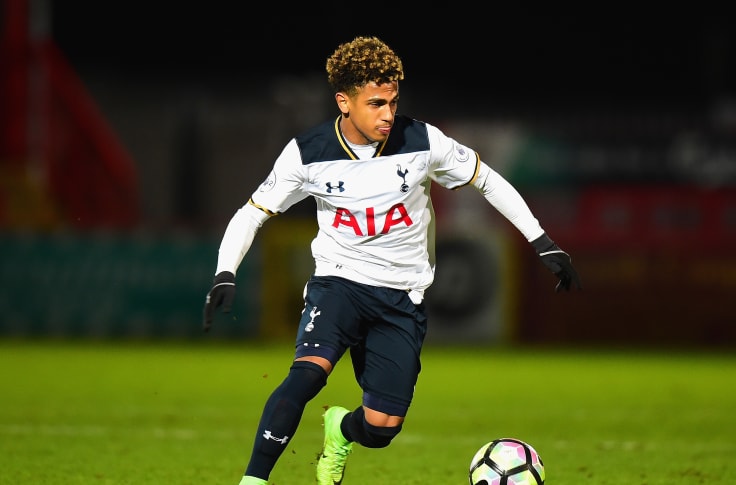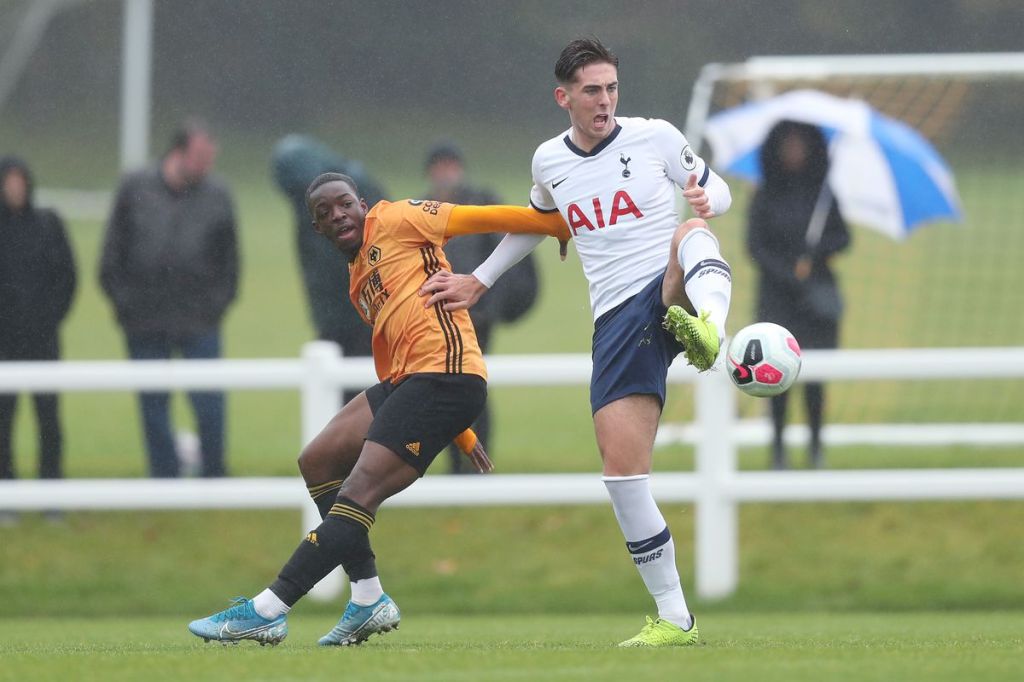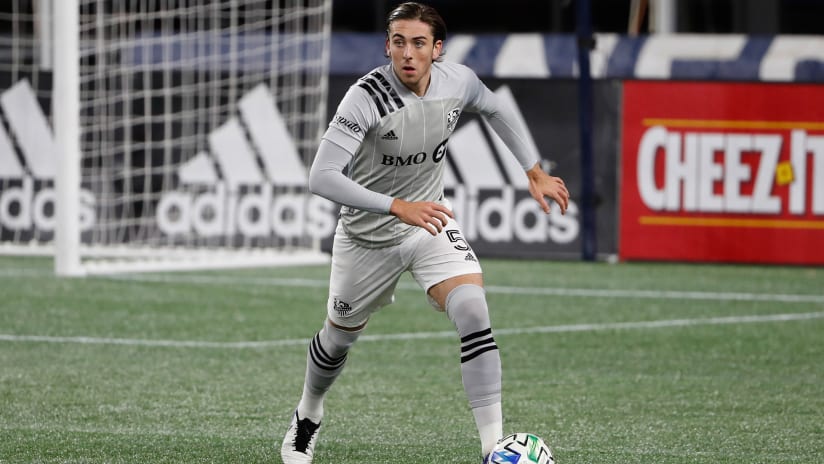Dennis Cirkin’s decision to move to Sunderland in a permanent deal came as a real disappointment to Spurs fans who keep an eye on the next generation coming through Hostpur Way. With a staggering array of attributes – his reading of the game, technique in both defence and attack, work-rate, surging runs from deep and ability to score and assist – Cirkin had long been touted as the future Spurs left back – at Lilywhite Rose we included him in our Dream Team 2030/31.
But with Sergio Reguilón, Ben Davies and Ryan Sessegnon bloking Cirkin’s path, it was clear regular first team opportunities would be limited for the foreseeable future. The decision to move to Sunderland to play senior football rather than spend another year with Spurs’ youth teams was an understandable one.
We have a look at some of the other promising Spurs starlets who decided their future lay elsewhere and, like Cirkin, made moves in a bid to fast track to first team football. This is how they have got on:
Noni Madueke
Noni Madueke was one of the most highly rated players to come through Hotspur Way, captaining Spurs’ Under 16 side and making his debut for the Under-18s aged just 15.
However, in 2018, Madueke reportedly rejected offers from Chelsea and Manchester United (as well as declining a new contract with Spurs) and instead joined PSV Eindhoven in search of a clearer pathway to first team football.
He has been a revelation in the Netherlands, scoring 18 goals and contributing 10 assists in 47 appearances for PSV (including four goals in six games for their reserve team Jong PSV in the Dutch second tier). He has hit the ground running this season, already scoring five goals in six games across all competitions.
Now 19, the winger could be set for a return to the Premier League with the England Under-21 international linked with a host of clubs, including Spurs. A £20 million fee may be enough to bring one of the most exciting talents in Europe home.
Reo Griffiths
Reo Griffiths was lethal while at Hotspur Way, scoring 44 goals in 60 games for Spurs’ youth teams. Four of them came in one game against Arsenal.
Yet, like Madueke, Griffiths saw his future elsewhere and moved to Lyon in 2018. Unlike Madueke, he has not yet enjoyed the same success.
Playing for Lyon’s B side in France’s fourth tier, Griffiths has scored goals steadily and captained the team on a number of occasions. However, he is still to make his debut for Lyon’s first team proper.
The 21-year-old is now in the final year of his contract and has recently joined Peterborough United on trial.
Keanan Bennetts
2018 saw a summer exodus of promising talent, with Keanan Bennetts joining Griffiths and Madueke in looking abroad for a fast track to first team football.
In all Bennetts played 69 games for Spurs’ youth teams, with 14 goals and 16 assists marking him out as a winger of great potential. A £2 million move to Borussia Mochengladbach therefore came as a surprise.
However, now aged 22, his career is yet to really take off. An initial season with Gladbach’s reserves was followed by a loan spell with League One side, Ipswich Town. While Bennetts made 30 appearances for the Tractor Boys, half of them came as a substitue.
He has since return to Gladbach’s first team, coming off the bench in both of their games so far this season.
Marcus Edwards
Despite being one of the most naturally gifted players to ever come through Spurs’ Academy – with Mauricio Pochettino describing him as ‘similar to Messi’ – Marcus Edwards only ever made one competitive appearance for the Lilywhites.
Loan spells to Norwich City and Dutch side Excelsior produced mixed results and Edwards made a permanent move to Vitoria de Guimaraes in 2019.
Edwards has since rebuilt his career in Portugal, with 12 goals and 12 assists in 72 appearances for Vitória offering a decent return. A transfer to Sporting Lisbon looked to be on the cards earlier this summer (with Spurs set to earn a 50% sell on fee) but that move seems to have gone cold.
Luis Binks
While all players on this list made transfers abroad, none moved further afield than Luis Binks.
The loss of Binks was significant. It had been some time since Spurs had produced a high quality home-grown centre back and it was felt that the England youth international was only a year or two away from first team football. His reading of the game, comfort on the ball and leadership qualities shone through even from an early age, and he was viewed as Toby Alderweireld’s long-term successor.
Despite a late intervention from then-manager Jose Mourinho, the centre-back made a surprise move to the MLS last year, moving to Montreal Impact. Binks made an instant impression, making 26 appearances before moving to Montreal’s sister club, Bologna F.C.
Binks will be hoping to continue his development in a league famed for breeding the world’s best defenders.














